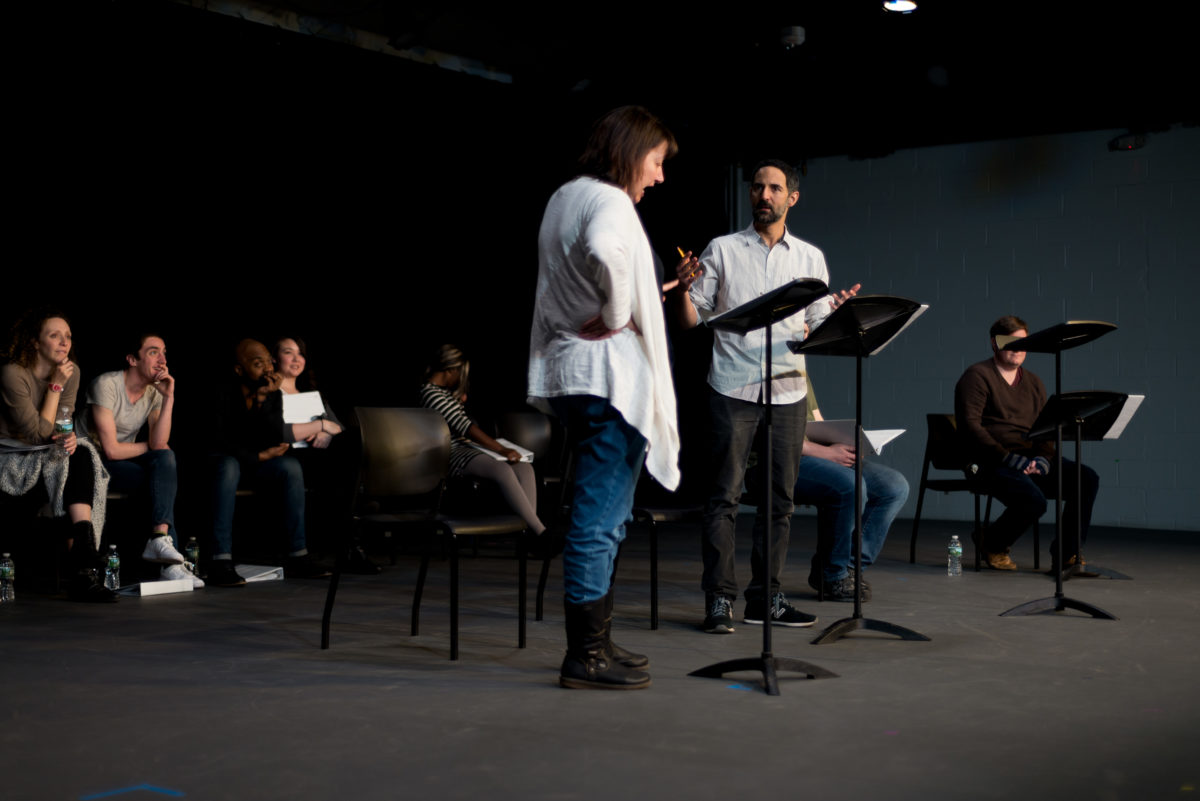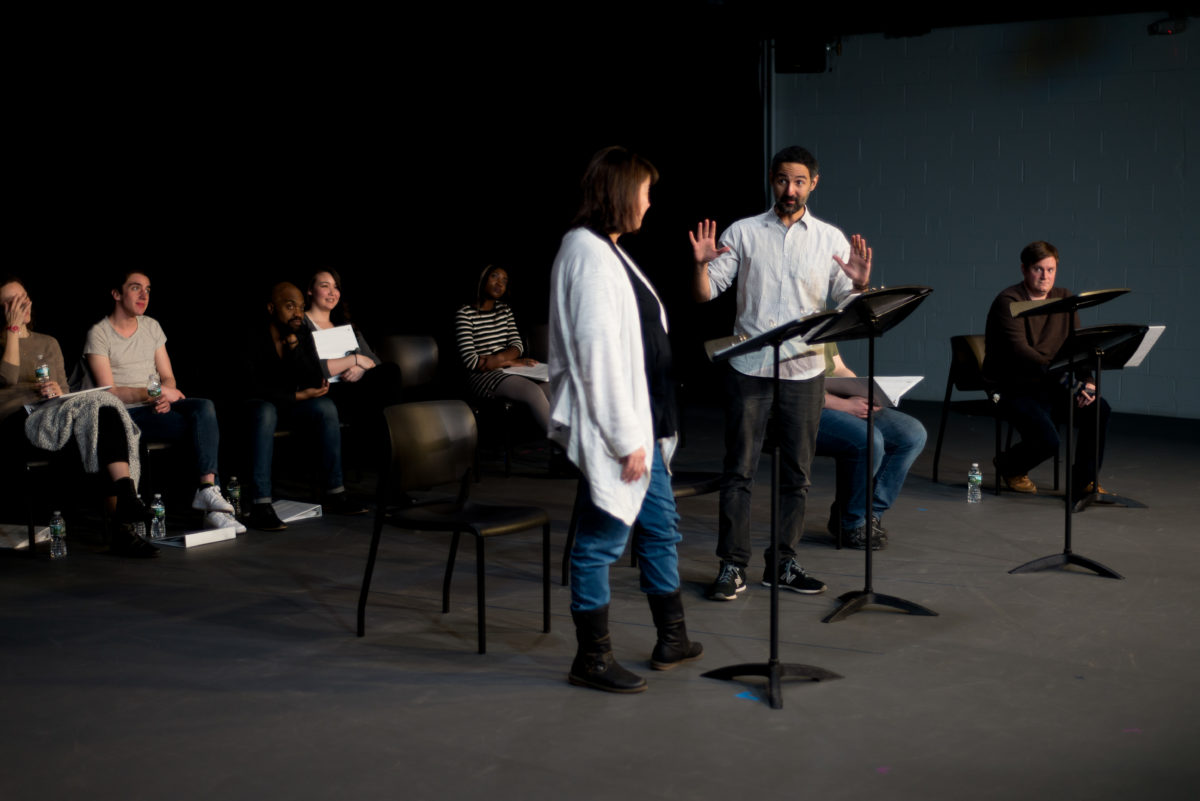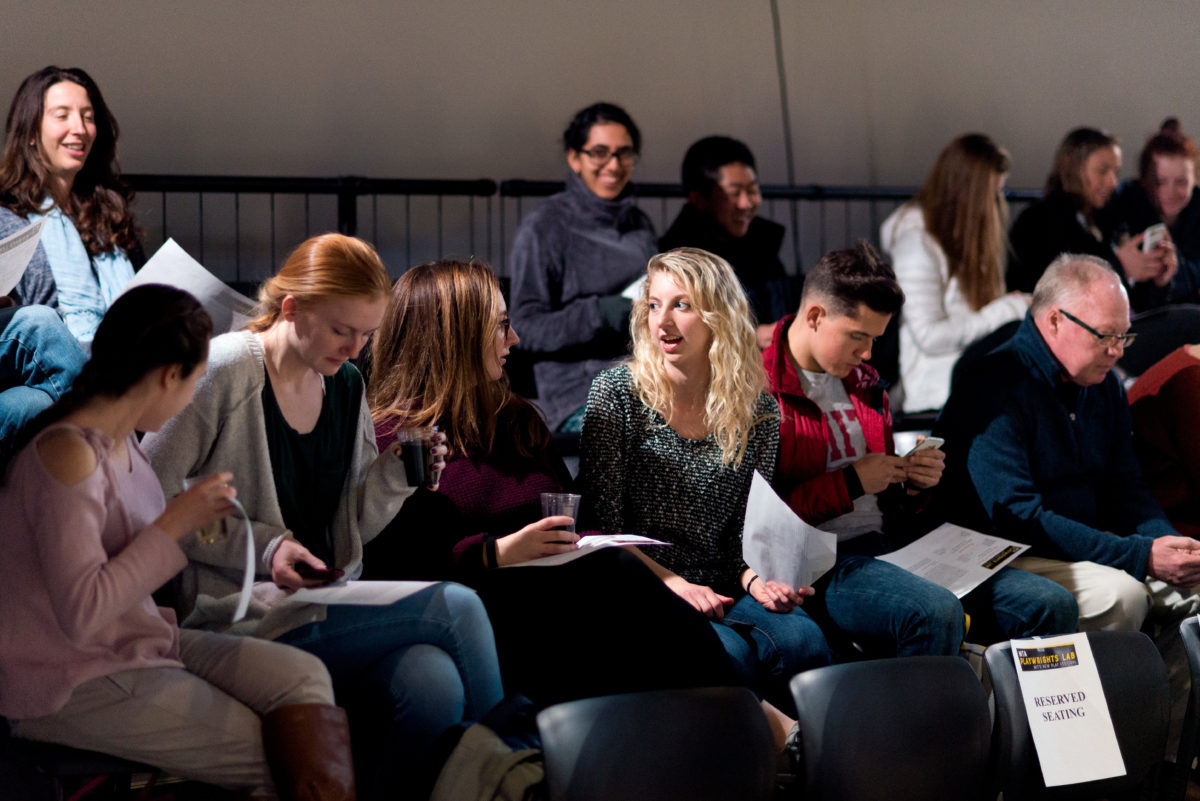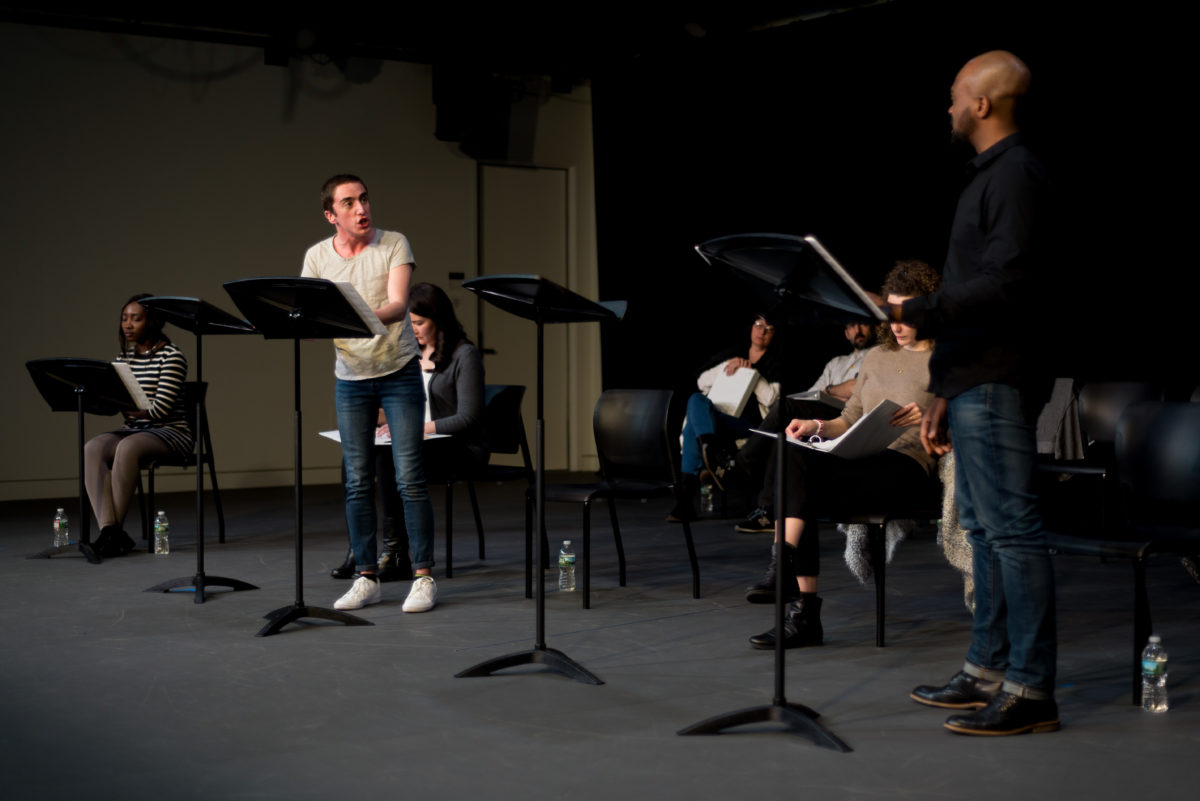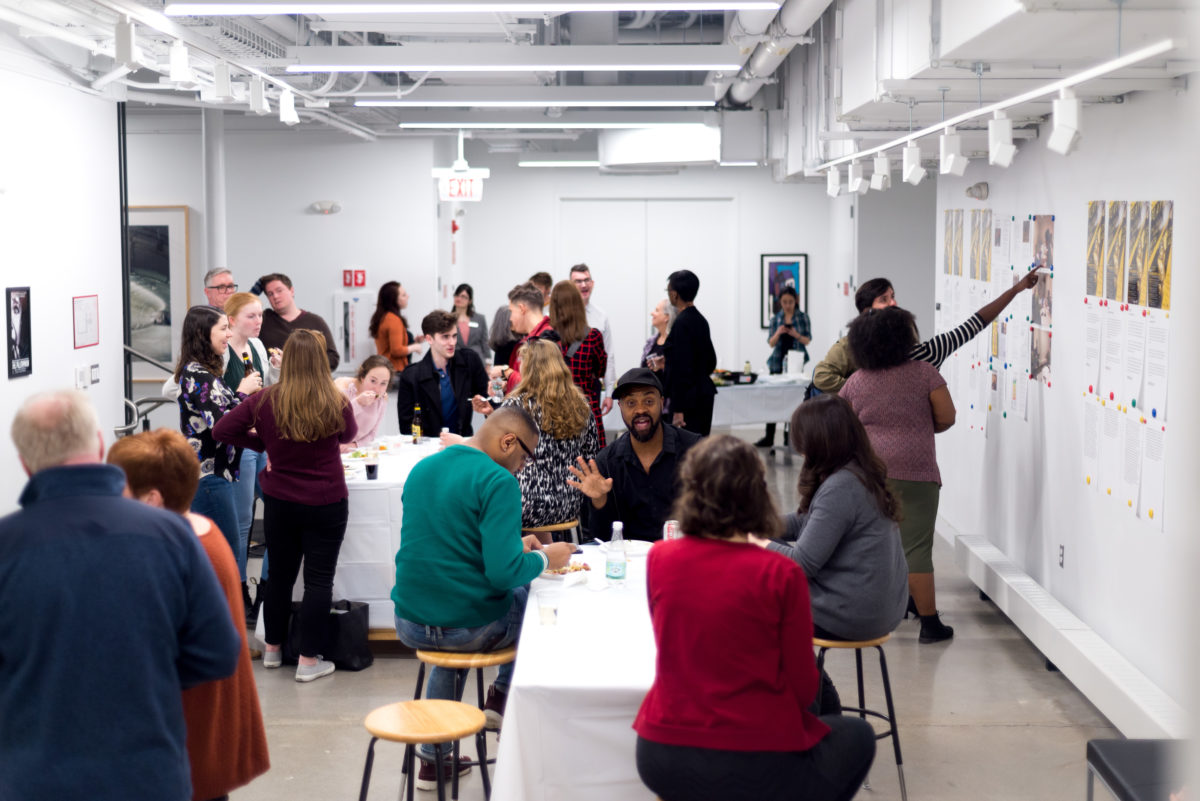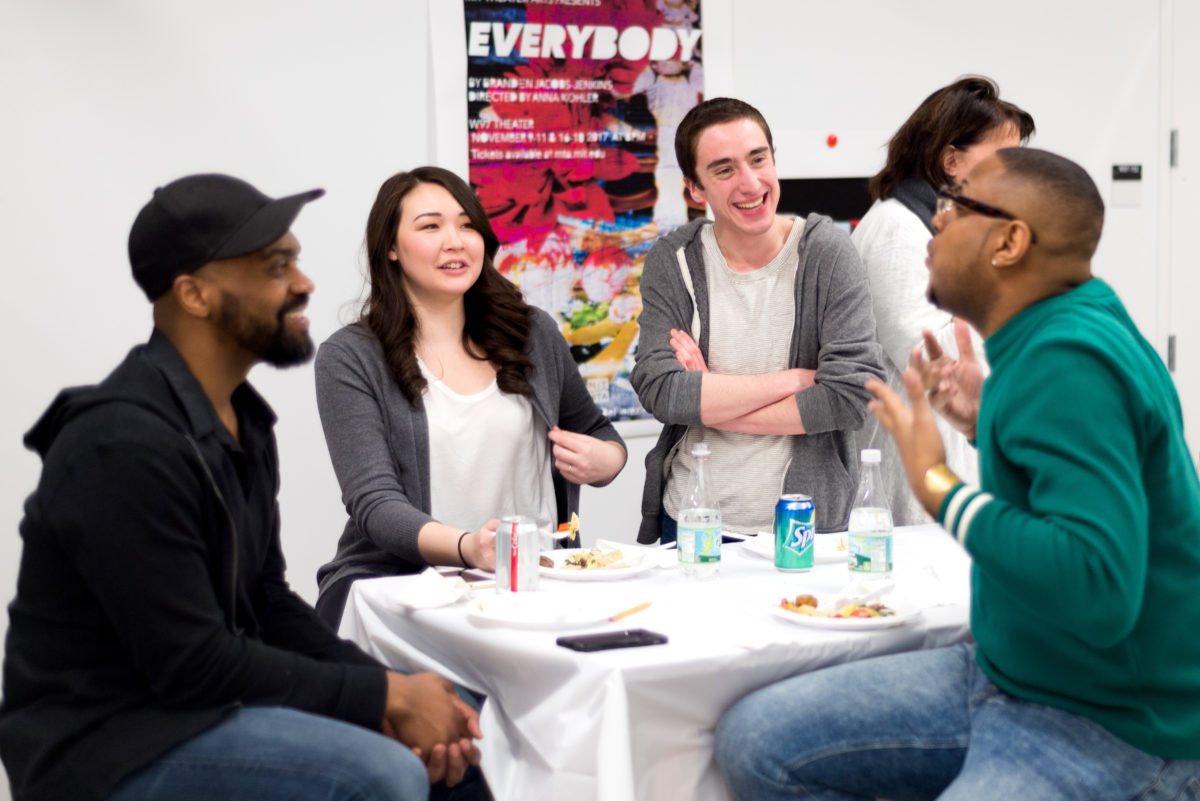On a recent Friday evening, six people gathered around a table in a mostly-empty studio in MIT’s new Theater Arts building on the western edge of campus. In a few hours time, the group—local actors Marge Buckley and Sarah Bedard, the Brooklyn-based director Adam Greenfield and MIT undergrads Kollin Wasserlein and Robert Thorpe—would stage a live reading of Wasserlein’s new play, Sand. They had never been in a room together before now.
Needless to say, they made quick work of introductions and launched into the script. Sand is a short play about two working-class teenagers trying to escape the oppressions and frustrations of small-town life. It is based in part on Wasserlein’s childhood in Utah. Although it has a timeless, otherworldly feel, the playwright’s lyrical language propels his protagonists through a set of darkly absurd obstacles with alacrity and wit. The rehearsal in April was the first time Wasserlein, a junior, had ever heard professional actors read his work out loud.
And that, in a nutshell, was the whole point. Sand was one of eight student plays performed by working actors in readings directed by professional directors throughout the weekend of April 5-7 in MIT’s first MTA (Music and Theater Arts) Playwrights Lab. The Lab’s playwrights were all students in MIT’s Playwrights’ Workshop, taught by Senior Lecturer Ken Urban, who joined the MIT faculty last fall.
The three-day festival was Urban’s idea. “I think hearing a professional actor read your words teaches you so much about language,” Urban said in an interview that night. “What you learn is how much you can do with little, how certain choices about how a line is delivered has ramifications on the story you’re telling.”
With the MTA Playwrights’ Lab, Urban hoped to give his students something invaluable: a chance to workshop their scripts with seasoned actors and directors in a professional setting. While it is common in theater arts programs for student plays to be staged by student companies, with the occasional director brought in from outside, Urban’s model is unique. “It becomes the writer’s educational experience and not the group’s educational experience in this setting,” said Greenfield, who serves as the associate artistic director of Playwrights Horizons theater in New York City. “Which I think is very valuable for writers.”
The eight student plays had been workshopped in class during the first half of the semester, and after the readings, the writers had a chance to hone a final draft for submission at the end of the term. Their first drafts were written in response to a collection of prompts provided by Urban, including an article about Russian interference in the election and an essay by the musician David Byrne about the isolating impact of technology on modern life. The plays run the gamut, from a Game of Thrones-like fantasy piece to a present-day sociopolitical dama to a sci-fi caper. But Urban saw some common threads. “There ended up being a lot of death in these plays, and I don’t think that’s an accident. I think plays are always kind of records of our time, and I think young people going out into the world, they want to change the world because they think it’s in pretty bad shape,” he said. “There’s a real concern about technology and the future and what world my generation is handing off to young people.”
Rachel Yang, a senior at MIT, was one of those students whose plays tackled looming questions about technology. Her play, Tactless, takes place in something like a bionic future, in which most of humanity has been implanted with brain-computer interfaces. Yang’s protagonist, however, never received implants, and her position as an outsider in her own world brings up knotty questions of difference and belonging, privilege and oppression — issues that resonate with the current moment.
For Yang, the process of workshopping her piece was invaluable. “You learn a lot from hearing what other writings are working on: ‘Oh, they’re using that sort of device, cool, I should use that in mine,’” she said. “Playwriting, at the end of the day, it’s one author, but it can be a really cool collaborative work.”
Yang’s group finished its rehearsal, breaking for dinner before the reading. Though her play had yet to be read publicly, Yang was already thrilled with the weekend’s results. “This is going to be one of my best memories at MIT.”

